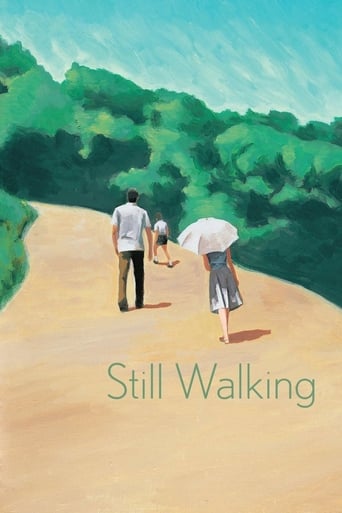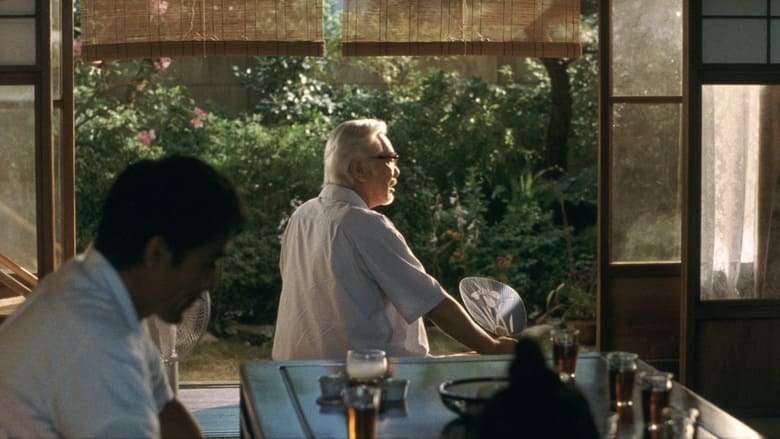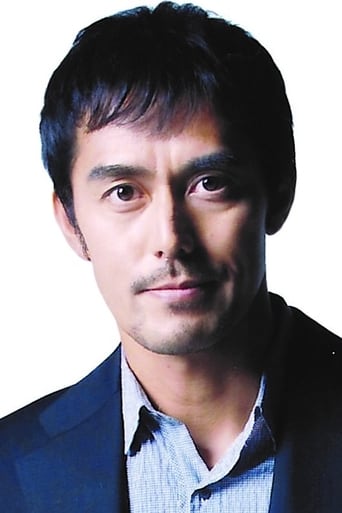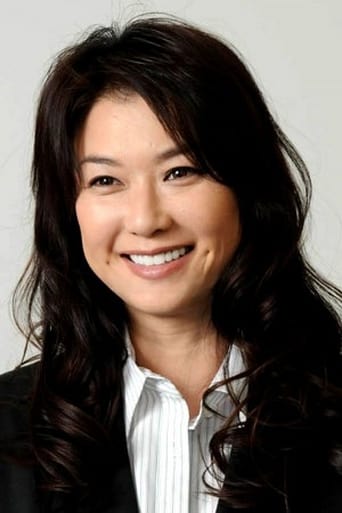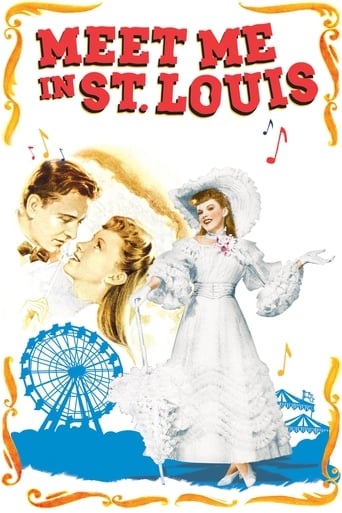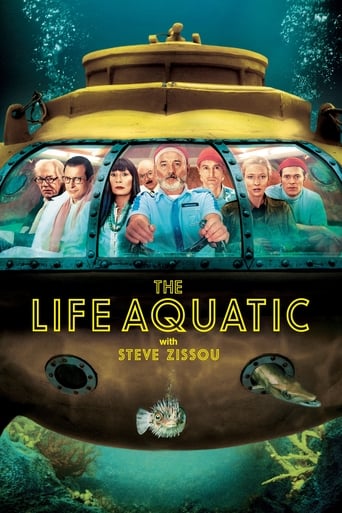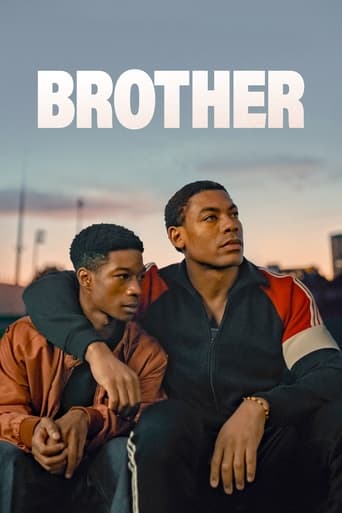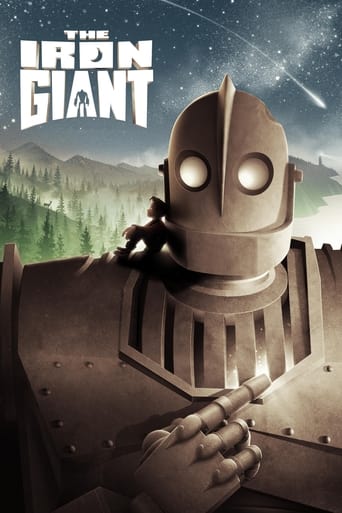Still Walking (2009)
Twelve years after their beloved eldest son, Junpei, drowned while saving a stranger's life, Kyohei and Toshiko welcome their surviving children home for a family reunion. Younger son Ryota still feels that his parents resent that he isn't the one who died; his new wife, Yukari, is awkwardly meeting the rest of the family for the first time. Daughter Chinami strains to fill the uncomfortable pauses with forced cheer.
Watch Trailer
Free Trial Channels
Cast


Similar titles
Reviews
Just perfect...
Disappointment for a huge fan!
It's fun, it's light, [but] it has a hard time when its tries to get heavy.
One of the worst ways to make a cult movie is to set out to make a cult movie.
I thought the actors, none of whom I had ever seen before, were all quite good. I particularly liked the father who played as Kyohei--he was unpredictable and sometimes he looks mad sometimes he looks smiling, but you could see that he was taking everything in the scene. I think he's slightly aggressive.
At the risk of stating the obvious this is a very "japanese" movie, and those who have seen a few will know what I mean. Another reviewer has, with some justification, decried the notion that because a movie is Japanese it seems to automatically attain some sort of semi-mythical status that the same movie made in (say) America would not. Certainly there is a genre of Japanese movies that fall into the "movies where nothing happen" category, and as with many forms of art, sometimes we mistake emptiness and simplicity with great meaning. Sometimes it's hard to tell where greatness actually exists and where we make it up for ourselves, although I suppose since the final result is the same it is a bit of a moot point.This movie borrows heavily from "Tokyo Story", another glacially paced movie of the inter-generational genre, but whereas the thrust of that movie was the younger generation's indifference and lack of time for the older generation this one is more about the simmering conflicts related to the death of a son, barely concealed resentments related to career choices, the failure to meet fatherly expectations, a mother's long held grudges, etc. As a family meets to commemorate the death of a son, we see a fine web of cracks start to radiate, all bubbling away nicely within the perfectly regimented framework of Japanese politeness and etiquette. The cracks are delicate but deep as the characters tip-toe around the many issues that interconnect 3 generations. Lurking below the surface of civility we see unpleasant aspects of most of the characters but in true Japanese style there are no raised voices, no shouting matches, no slammed doors, no accusations, no resolutions, no explosions, no car chases, no nudity, no violence - just swirling undercurrents. Some people will like this, others will not, and that is fine.I enjoyed this movie, but it was not a world shattering event. I thought some opportunities for development were missed and I was particularly annoyed when the movie did not finish immediately after the narration near the end. This could have been a totally killer statement, at last, a statement of truth and brutal cruelty to contrast cataclysmically with the hour of banal politeness and withholding of feelings that preceded it. This would have given the whole movie some meaning and bite, but no, they had to spoil it by reverting to the pretense of everyone playing happy families.In summary a good movie that those used to the "japanese" pace will enjoy, but probably not one that will change your life.
This one brings you so many memories. Its so plain yet so rich. I think even though the movie is Japanese everyone can relate. What makes it special it's the focus on our loved ones who are gone, and ignorance on those who are still alive. And the ending fills you with an impeccable regret. It also reflects the manners and behavior live on inescapable cycles. Only the one who has been sinful and experienced can see the damage they have created and then realize what they have done. You can have the most brightest mind but you will be back to your darkest roots if you ignore the simple things like your loved ones, your family. Don't resuscitate, that ain't worth nothing."It's always like that. I'm always a little late."
This movie is written, scripted, edited, and directed by the unusually prolific director Hirokazu Koreeda, who's every movie seems to win at international film festivals. This movie "Aruitemo Aruitemo" (walking, walking - endless walk) is no exception, winning four international film awards, and two domestic awards.Ryota Yokoyama (Hiroshi Abe), his wife Yukari (Yui Natsukawa), and their son from Yukari's previous marriage Atsushi (Shohei Tanaka) is on their way back to Ryota's parent's house for the 15th anniversary of Ryota's older brother's death. Ryota's father's family consists of father Kyohei (Yoshio Harada), mother Toshiko (Kiki Kirin), and daughter Chinami Kataoka (YOU), her husband Nobuo (Kazuya Takahashi), and their two children Riku (Ryoga Hayashi), and Satsuki (Hotaru Nomoto). In a way, father who's a retired family doctor, and his family has never recovered from the death of Ryota's brother Junpei who died while trying to save a drowning boy Yoshio Imai (who survived and was visiting to offer incense to Junpei's spirit). When Ryota, and Junpei was a child they had aspiration to become a doctor like their father. Something changed Ryota, and he never pursued becoming a doctor, and became an antique restorer. His father still moans the loss of Junpei who he was counting to take over his business. Father sees Ryota as a failure, and their relation is not quite good. Ryota who's currently don't have a job feels uncomfortable in every situation. He even says to Kyohei "Is being a doctor so great !? We don't know how brother would have been either(If he had lived).". As the story progresses, history, and the story of each of the character's life gets revealed. Toshiko bring out an old record titled "Bluelight Yokohama" (Performed by Ayumi Ishida) at the family dinner, and plays it. It was a song she heard 30 years ago when she went to check out the apartment of a woman Kyohei was having extramarital affair with. But family tie dies hard, and Ryota says to Kyohei "Some day (I'll take you to see a game of soccer)". Seven years later, both Kyohei and Toshiko are dead, and Ryota's family has a new member - a daughter. Together they return to pay respect to the grave of their family. Nothing spectacular happens in this movie, but as I watched the first 10 minutes, I was already enthralled by the acting, and the story. I honestly felt that "I don't care if nothing happens, I'm intrigued by this family, and I want to see more.". Details are written superbly. The discomfort Atsushi feels with his cousins, the obligation Yukari feels towards Ryota's parents. All adds to the friction each are feeling in their lives. Mother played by Kiki Kirin is so perfect for the role. Without her, this movie wouldn't have been as good as it is. Hiroshi Abe, and Yui Natsukawa reprises the duo after "Kekkon Dekinai Otoko", and are superb match as modern husband and wife.The people in this movie seems to have lived their lives without a plan, didn't know when to let go, and plan their actions for the future. The death of Junpei seemed have negatively affected the whole family forever. Good movie that reflects the life of Japanese family in an authentic way. Only Japanese movies seems to be able to go so deeply into subtleties of family affairs as this one. You need to see this movie to appreciate family affairs.

